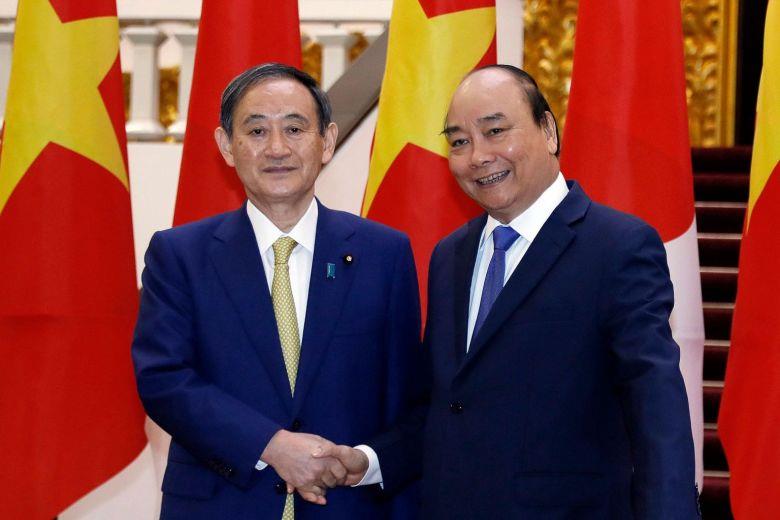HANOI, Oct. 19 (Reuters) - Japan and Vietnam agreed on Monday (Oct 19) to strengthen security and economic ties, including an agreement in principle for Japan to export military gear and technology to the Southeast Asian nation, amid concerns about China's regional assertiveness.
"It is a big step in the field of security for both countries that we reached an agreement in principle on the transfers of defence equipment and technology," Japanese Prime Minister Yoshihide Suga told reporters after meeting his Vietnamese counterpart, Nguyen Xuan Phuc, in Hanoi.
"Vietnam, which is serving as ASEAN (Association of Southeast Asian nations) chair this year, is key to realise a free and open Indo-Pacific," Suga added.
The leaders also agreed on the importance of maintaining peace, security, and freedom of navigation and overflight in the South China Sea, and to settle disputes in a peaceful manner, Phuc said in a joint media appearance with Suga.
"Vietnam welcomes Japan, a global power, to continue to actively contribute to regional and global peace, stability and prosperity," Phuc said.
Suga, who took office last month after Shinzo Abe quit because of poor health, is making his overseas diplomatic debut this week with a trip to the vital Southeast Asian nations of Vietnam and Indonesia.
Japan must balance its deep economic ties with China with security concerns, including Beijing's push to assert claims over disputed East China Sea isles.
Vietnam and other ASEAN members, many of which have territorial feuds with China in the South China Sea, are wary of alienating a big economic partner and reluctant to become entrapped in an intense confrontation between the United States and China.
China claims swathes of Vietnam's exclusive economic zone, as well as the Paracel and Spratly Islands.
Japan, which ended a decades-old ban on overseas arms sales in 2014 to help strengthen the nation's military and lower the cost of home-built military equipment, has been in talks with Vietnam, Indonesia and Thailand on deals to allow such exports to those nations.
Suga's visit also coincides with Japan's efforts to diversify its supply chains and reduce reliance on China by bringing production home or moving it to Southeast Asia.
Vietnam is a popular choice for Japanese firms. Half of the 30 Japanese firms that used a 23.5 billion yen (US$222.9 million) government programme to diversify supply chains in Southeast Asia targeted Vietnam, which has aggressively courted such investment.
Suga said the two countries had agreed to bolster their cooperation to mitigate the impact of the coronavirus pandemic.
"We agreed on restarting 'business track' travel as well as passenger flights between the two countries today," Suga said.
Suga also said that Japan would help Vietnamese "trainees" working in Japan, many of whom are struggling as the COVID-19 outbreak hits Japanese companies.
